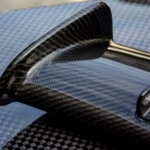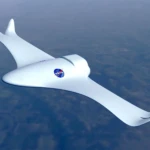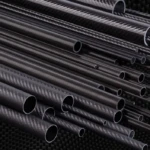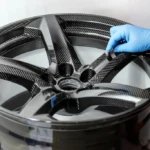Navigate the world as a freelance CNC mechanic: Your final guide
The landscape of modern manufacturing is developing, and free CNC mechanics are increasingly becoming key players. They provide expertise, flexibility and cost-effective solutions, empowering startups, R&D teams and large enterprises to turn complex designs into tangible reality. Whether you are an experienced mechanic, i.e. dabble in a freelancer or consider hiring a business, this guide reveals the journey.
What does a freelance CNC mechanic do?
Free CNC (Computer Numerical Control) Mechanics run, program and maintain CNC machines (boards, mills, routers or grinders) on a contract basis. They convert CAD/CAM models into precise parts by setting up tools, selecting materials, optimizing tool paths and ensuring strict quality control. Unlike in-house mechanics, freelancers are cluttered, managing their workflows, and often specialize in niches such as aerospace, medical equipment, or rapid prototyping.
Key Advantages of Hiring a Freelance CNC Mechanic
- Cost-efficiency: Avoid overheads such as equipment maintenance, store space or full-time salary.
- Professional knowledge: Get niche skills (such as titanium processing or micro-tolerance) without long-term commitment.
- Scalability: There is no resource pressure based on project demand, production will be expanded or reduced.
- Speed and flexibility: Freelancers often provide faster turnaround for emergency prototypes or small batches.
Basic skills for success as a freelancer
- Mastery of technology: Proficient in G-code, CAM software (such as Fusion 360), blueprint reading and metallurgy.
- Solve the problem: Diagnosing machine errors, optimizing feed/speed and troubleshooting tolerances.
- Business acumen: Pricing strategy, contract negotiation and customer management.
- Adaptability: Keep updated industry 4.0 trends such as IoT integration and automation.
5-axis revolution: The secret weapon for freelancers
Complex geometric shapes? A pressing deadline? Enter 5-axis CNC machining. Unlike a 3-axis machine, a 5-axis system moves the tool along five simultaneous axes, such that:
- Single-set accuracy: Complete complex parts without repositioning, cutting errors and lead times.
- Excellent surface quality: Optimize tool angles on contour design to make it smoother.
- Material versatility: Handle hard alloys, plastics or composites with unparalleled efficiency.
For freelancers who lack 5-axis equipment, work with experienced manufacturers Greglight Gragenting Bridge gaps. Their industrial-grade 5-axis capabilities allow freelancers to undertake highly complex projects that would otherwise be rejected, thus expanding market coverage while ensuring quality.
Overcoming freelancing challenges: practical strategies
- Uneven workflow:
- Build a customer pipeline through platforms such as LinkedIn, Xometry or Industry Forums.
- Prototyping services for a stable influx of projects.
- quality assurance:
- Invest in accurate measurement tools (calipers, CMMs).
- Partner with certified stores (ISO 9001, AS9100).
- Resource constraints:
- Work with manufacturers to mass-produce or exotic materials. For example, Greatlime supports freelancers who are fast, cost-effective production and supplementary services such as anodization or heat treatment.
The future of free CNC processing
The gig economy is reshaping manufacturing. With the need for custom parts, freelancers using AI-powered tool route optimization or hybrid manufacturing (additive + subtraction) will lead to. Sustainability practices, such as effective substance use, are also aligned with global trends and are attractive to eco-conscious clients.
Why freelancers
Freelancers should not face their limits. Greglight CNC machining Provides the backbone of growth:
- Advanced 5-axis technology: Solve harsh geometric shapes without capital investment.
- End-to-end service: From CAD review to finish-inside.
- Speed and scale: Fast steering custom parts in metals (aluminum, steel, titanium) and plastics.
- Cost transparency: Competitive pricing for prototypes or bulk orders.
By working with Greatlight, freelancers improve credibility, reach stricter deadlines and compete with large stores while focusing on core skills.
in conclusion
Free CNC machining combines craftsman precision with entrepreneurial gravel. Your expertise as a mechanic is invaluable when businesses seek agile, professional manufacturing solutions. Equip yourself with cutting-edge knowledge, build strategic partnerships, and thrive with technologies such as 5-axis machining. Whether you are manufacturing independently or working with pioneers like Greatlight, the future is your machine.
FAQ: Free CNC Mechanic
Q1: How do I find a customer as a new free CNC mechanic?
- Start with online marketplaces (UPWORK, MFG.com), local manufacturer spaces and industry events. Show past projects on portfolio websites or LinkedIn.
Q2: What is the typical pricing model for free CNC work?
- Options include hourly prices ($40-$80/hour), small pricing or project-based quotes. Factors cost, machine time, setup and overhead.
Question 3: Can I handle 5-axis projects without having 5-axis machines?
- Yes! Work with manufacturers like Greatlime. They provide access to using industrial 5-axis equipment, allowing you to professionally bid for complex work.
Question 4: How can I ensure quality without a formal quality inspection team?
- Implement digital inspections (using software like PC-DMI) and work with certified stores to obtain critical tolerances. Strict documentation process.
Question 5: Which materials are the most cost-effective for free projects?
- Aluminum 6061 and ABS plastics are reasonably priced and processable. For professional needs (such as medical or aerospace), partners leverage material diversity.
Question 6: Why should I work with Greatlight instead of local machinery workshops?
- Greatlight offers advanced 5-axis functionality, one-stop post-processing, fast turnaround and scalable solutions – ideal for freelancers juggling variable workloads.
Question 7: How do I stay competitive as automation grows?
- Skills in high demand areas such as multi-axis programming, rapid machining and sustainable practices. Small batch working machines that focus on complexity cannot be easily copied.
Are there any more questions? The team at Greatlight is ready to support your free travel. Contact Explore Partnership Opportunities.

















